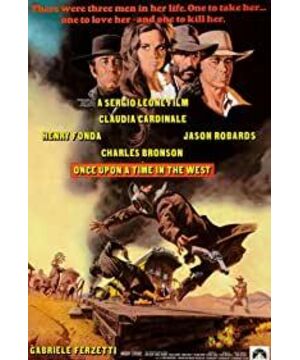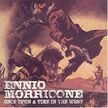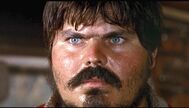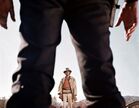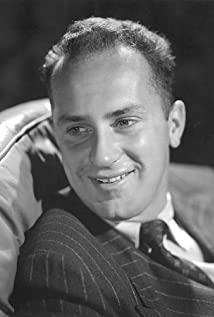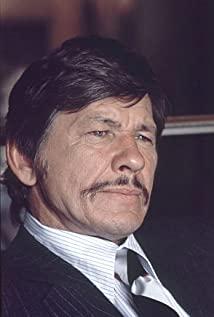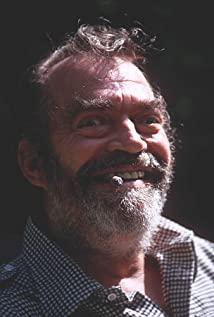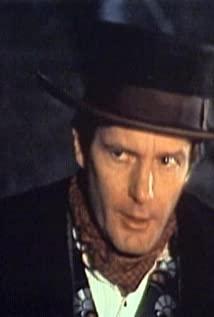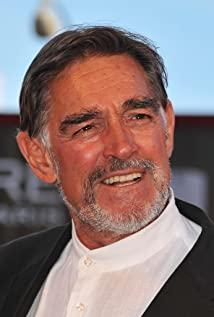"Once Upon a Time in the West" is an excellent work in "Italian Westerns" by Italian director Sergio Leone. The director from a film family created a new type of film in the 1960s. They were shot in Europe, with the style of European films, but with the American West story as the theme, starring American stars. This kind of "Italian Westerns" was imitated because Sergio Leone's works were very popular with the audience, and became popular for a while. Among the five famous "Italian Westerns" shot by Sergio Leone between 1966 and 1972, they include "Once Upon a Time in the West" and "Once Upon a Time in Revolution". These two films and the non-Western film "Once Upon a Time in America", which came out in 1984, were added together to form Sergio Leone's "American Trilogy". The three films look at the United States from three different angles. "Once Upon a Time in the West" recalls the period of the development of the western region, "Once Upon a Time in the United States" describes spontaneous revolution, and "Once Upon a Time in America" reflects the current era of smuggling and bribery.
Few European directors are like Sergio Leone, based in Europe, but persistently exploring the United States, and devoted all their lives to the creation of American themes. Someone asked him the reason for this. He said: "Because the problems of the United States are common problems of the whole world." In his eyes, the United States is full of myths and nightmares. Therefore, he neither used realism nor naturalism, but used romanticism to shoot. He believes that the United States itself is a combination of fantasy and reality. Dream will become reality unknowingly, and reality will become a dream unknowingly.
The story of "Once Upon a Time in the West" takes place during the accumulation of primitive capital in the United States. At that time, the western region was still desolate. In this piece of land that originally belonged to the Indians, bandits were infested, and the figures in the green forest showed their magical powers. There is a paradise for adventurers, who flocked to the west to build railways and develop. Because "where it is developed, it is posted". Development is the inevitability of history. The train symbolizing new productive forces finally moved westward, and civilization replaced barbarism, albeit at the cost of blood, sweat and tears. Whether it is a green forest hero or a bandit bully, they are nothing more than hurried passers-by in the history of western development.
"Once Upon a Time in the West" focuses not on the plot, but on the characters. The characters act according to their goals, the plot is produced in their interwoven actions, and the theme is also unfolded in the world where the characters live. A white bandit leader, an Indian avenger, a green forest hero of mixed whites and Indians. From the racial attributes of the three people, the meaning of the film can also be seen. The famous American actor Henry Fonda plays Frank. This is the most ferocious of the roles he has ever played in his life. Frank killed McBain and the whole family casually, not out of hatred, nor for money, but because he was accustomed to talking with a pistol. In order to silence his mouth, he didn't even let the nine-year-old kid go. Xia An was originally a hero who robbed the rich and helped the poor in the American Western legend. In "Once Upon a Time in the West", Xia An is a righteous green forest thief, who robbed the rich and helped the poor evolved into sacrificing his life to save the beauty. His name is confusing, but he is as docile as a sheep in front of Jill. He saved Morton's life because he was weak, and it turned out that it was this weak who took his life. Charles Bronson, who played the harmonica, was one of the "three big guns" on the American screen in the 1960s and 1970s. He was good at playing tough guys and avengers in action movies. In "Once Upon a Time in the West", he maintains a consistent image-there is no expression on his face, no words, only actions. No one knows his name, no one knows where he comes from, but from the whimpering harmonica that accompanied him, he felt that he might have an unknown painful experience.
The world of Sergio Leone is the world of men. A beautiful woman appears in "Once Upon a Time in the West". Jill, played by the famous Italian actress Claudia Cardinal, is a woman liked by all three men. Although she and the three men's rivals are not too many, they are only one or two, but their delicate performances add a lot of lyrical elements to the film. Xia An had no family since he was a child, and lived all the year round. He felt the warmth of family in Jill. He said to Jill: "You remind me of my mother. She is a prostitute, but an amazing woman, and my father must be a happy man." "The coffee made by my mother is so hot and so strong." He was on Jill. Finding the shadow of his mother, he cherishes her, respects her, and does not hesitate to pay the price of freedom and even life for her. However, in the end he found out that the harmonica player Jill was heading for. So when he finally shaved his face and Gil praised him as a pretty handsome man, he replied, "But not the man in your mind." He quietly quit the love scene, and quietly left the world. The harmonica player was favored by Jill for saving Jill's life. However, the desire for revenge in his heart was too strong, overwhelming the love between men and women. He accidentally broke into the hotel room where Jill lived, and she was taking a shower. Jill expected him to do something, but he just walked over and handed her a brush for wiping her back. Jill's worries during the duel between the harmonica player and Frank, and her joy when she saw that the survivor of the duel was the harmonica player, all showed her enthusiasm for him. However, once a woman in the dust, she understands that the characters in the arena are involuntary. Therefore, when the harmonica player decides to leave, she can only hopefully hope that he will return one day in the future. Frank, the bandit leader, doesn't have the word "love" in his heart, but he has taken possession of Jill in order to own the sweet water farm. Jill came from the bustling New Orleans to the desolate Western Wilderness, unaccompanied, emotionally lost and empty. Frank took advantage of this. He said to Jill: "I know, you need a man's strong hand to caress." However, just as Jill was indulging in the man's caress, he was already absent-minded to her, just thinking that he should marry her next and legally own the sweet water farm. . Jill was not a weak woman, and would throw into the arms of her husband and enemy for a while. This plot was originally unreasonable. However, the excellent performances of the two actors made the scene seem very natural.
The characters in the Green Forest do not fight for ruling others, or fight for their own survival. At a disagreement, he drew his guns at each other. People face death in seconds. But in Sergio Leone’s westerns, there is no bloody scene of death. Because he believes that for a man, death is not important, but how to die is important. "Once Upon a Time in the West" describes the different attitudes of the characters towards death. The harmonica player’s elder brother didn’t want to step on his younger brother’s shoulders to linger. The laundromat took the "tail" to Frank's hiding place, and Frank wanted to execute him. When he died, he wanted to please Frank and betrayed Cheyenne who was hiding under the train, but Frank wouldn't let him open his mouth and shot him like a dog. Morton was thinking that "you are not a good man if you don't have the sea." Before he died, he still crawled to the puddle on the roadside with difficulty. Xia An was fatally wounded during the escape, but he did not tell Jill that he would die soon, and he would not let the harmonica player stay with him when he died. He is the strong, and the strong will not let others see tears. After Frank was shot and fell to the ground, the last sentence was still asking: "Who are you?" He was not afraid of death, but he was afraid that he would not understand it. The harmonica player didn't let him die in the hands of his betraying subordinates, but wanted to kill him personally and let him die clearly.
Water is a thread that runs through "Once Upon a Time in the West". At first, the train station was quiet, only the creaking of windmills was heard. Drops of water dripped on the brim of a big yellow man. He carefully took up his hat, raised his head and drank the water... Jill told Sam the coachman to go to the Sweetwater Farm, and Sam laughed when he heard it, "Thanks that Irishman can think of it. Sweet water?! Haha! Sweet water!" The shopkeeper of the post shop saw Jill and asked what he could do. Jill said that he only wanted to wash with water. The shopkeeper smiled: "Water?! There is no water here." Gil, who grew up by the sea, was puzzled: "Then you will never take a bath?!" The shopkeeper explained: "Here, water is more expensive than gold. For water, what hurts the heavens and the truth. You can do everything.” The dream of the railway king in his life is to lay the rails all the way to the Pacific Ocean. He hung an oil painting of the sea in his special train, and looking at it, he seemed to hear the sound of turbulent waves. He failed to realize his dream. But in any case, whether it is sea water, well water, or sewage, he died in the water after all. Xia An knew that he was dead soon, and asked Jill to give him a pot of hot water. He has to shave his face clean before going on the road. In the last shot of the film, Jill delivers water to the workers. Water is the source of life for railway workers and the power of locomotives. Water brings hope to people.
The film directed by Sergio Leone has a relatively fixed crew, which makes several of his "Italian Westerns" have the same style. His films have four characteristics:
One is less dialogue. Not only are there few dialogues, but the expressions of the characters are not many. The tougher the guy, the more expressionless. Only when they shoot their faces in close-ups can the audience find that they are also burning with certain emotions. It is precisely because Sergio Leone’s films narrate the story through action, not dialogue, that enables them to drive straight into the international market.
The second is that there are many features. Among the world-renowned directors, Sergio Leone is the one who used the most extensive close-up shots. Close-up shots are quite important in each of their films. The close-ups he took, sometimes even only part of the face, such as eyes, show the emotions and desires of the character through the "window of the soul", or show the intention of the character with the slight beating of the eyelids. "Once Upon a Time in the West" caught the audience with a few close-ups: a fly crawling on the gangster’s face, and a drop of water on the brim of the hat...
The third is to be good at using moving lenses. Sergio Leone is good at using moving cameras to create atmosphere. For example, a post shop. Xia An suddenly heard the sound of the harmonica-he followed the direction of the sound and pushed the oil lamp hanging above the manger forward-the camera slid past the oil lamp and stopped at the end of the manger-the harmonica player sat cross-legged on the horse On the trough, he is playing the harmonica-the camera moves down, a pistol is placed next to his left leg, the muzzle is outward-Xia An walked over, hooked the gun along the manger with his fingers, turned it a few times, and pushed it again. Go back and ask: "You can play the harmonica. Can you shoot?"-The pistol slid down the manger back to the harmonica player's left leg, but the muzzle turned inwards-the harmonica player turned the muzzle outward again-Xia An angrily shouted: "Stand up!"-The harmonica player remained motionless, just picked up the gun with his left hand, but still played the harmonica with his right hand. This scene pushed the tension and tension to the apex.
The fourth is to use the soundtrack to set off the main characteristics of the characters. The main characters have their own theme music. Sergio Leone’s several major films, such as "The Good, Evil, and the Ugly," and "Once Upon a Time in America" are the same, but the music of "Good and Evil and Ugly" is humorous and grotesque, "Once Upon a Time in the West" and "Once Upon a Time in America" The music is tragic and desolate. In "Once Upon a Time in the West", Morton's soundtrack sometimes resembles crisp water droplets and sometimes resembles turbulent waves, symbolizing his yearning for the sea. Xia An's soundtrack is leaping, symbolizing his uneasy life. Finally, he died and fell, and his musical theme stopped abruptly. Jill’s soundtrack fully utilized the function of the theme variation. Although the same melody was used, when she first got off the train, the music was brisk; when she got on the carriage and went all the way west, she saw the majestic scenery of the west. Grand Canyon), the music is like a hymn to the west; when McBain was sent to the funeral, the music was sad; when he was with Frank, the music was almost inaudible; when the construction boom was finally launched, the music showed enthusiasm Cheerful. Frank's soundtrack is the theme music of the whole film, but it is also the soundtrack of the harmonica player, which seems to symbolize that the fate of the two are destined to be linked together. Where Frank goes, where the harmonica player traces, only one of them can die. . When Frank appeared, the weird harmonica sound could be faintly heard in the theme music. When the harmonica player appeared, the whimpering harmonica was backed by the theme music. When the image in the mind of the harmonica player is blurred, the theme music is intermittent, the image is clear, and the music is complete. During the duel, the theme music was overwhelming, pushing the scene to a climax. Frank fell to the ground and died, and the music stopped, symbolizing the end of their entangled grievances.
"Once Upon a Time in the West" has a high level of directors, actors, photography, music, editing, etc. It is a highly watchable film that emphasizes both artistic and commercial nature. Although the film was shot at a slow pace, it did not delay. The film is two and a half hours long, and it is not dull and cumbersome. It attracts the audience from beginning to end, and it is memorable after watching it. It is one of the best Westerns ever.
View more about Once Upon a Time in the West reviews


